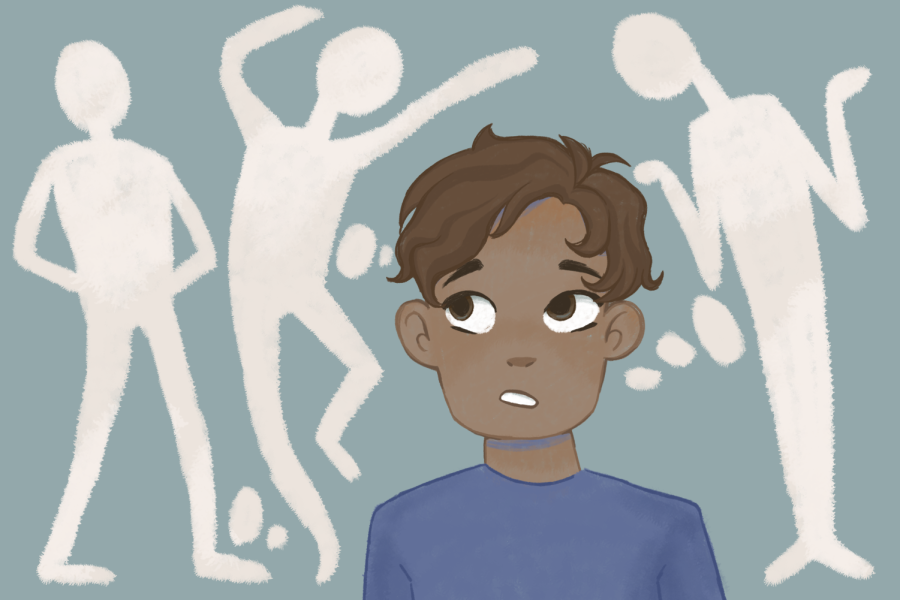‘Constantly surrounded by my 4 walls’: study finds pandemic impacted young adult personalities
October 18, 2022
Young adults experienced a change in personality traits during the later stages of the pandemic, according to a recent study by researchers at Florida State University.
The study, published Sept. 28, looked at the five-factor model personality traits — neuroticism, extraversion, openness, agreeableness and conscientiousness — to observe the pandemic’s impact on each. Young people have more “malleable” personalities and therefore are more susceptible to personality changes, according to Angelina Sutin, the study’s author and FSU College of Medicine professor. Although Sutin said the changes might not be long-term, increased neuroticism (the tendency toward negative feelings) and decreased conscientiousness (the tendency to be goal-oriented and disciplined) could impact educational success and mental and physical health.
Personality is a combination of thoughts, feelings and behaviors over long periods of time, UT psychology professor Sam Gosling said.
“Personality essentially influences how we perceive the world and then respond to it,” Gosling said. “(If there are) two people walking down the exact same street at the exact same time next to each other, … one person will be noticing the cafe ahead and the beautiful flowers and sunshine and someone else will be noticing the slamming car door and the people walking behind and the dirt in the streets.”
Being in lockdown eliminated many of the choices people make that demonstrate their personalities, Gosling said.
“(Personality is) not only what we do and how we behave, it’s also the situations we choose,” Gosling said. “In a normal free life, you have a chance to choose your opportunities.”
Neuroscience sophomore Alija Koirala said at the beginning of the pandemic she struggled to maintain her friendships, which left her isolated.
“I was constantly surrounded by my four walls,” Koirala said. “I just realized I was horrible at reaching out to people.”
The impact of the lockdown lingered for Koirala. Once things opened up, she said she still struggled to form connections.
“I feel very alone,” Koirala said. “I feel more desperate to make these lifelong connections, but I find this block in being able to do so.”
Economics senior Narmeen Virani said before the pandemic she thrived when socializing. Now, she said she considers herself more introverted.
“I was always out and about and meeting new people, barely by myself, always studying in groups,” Virani said. “(Now) I’m with myself the majority of the day because I’m just so used to that trend that I had for two years.”
Although she strives to recover her extroverted nature, Virani said she’s learned to be comfortable being by herself.
“I think a lot of people grew in so many ways,” Virani said. “Being alone isn’t something that people enjoy doing, but I think it taught so many people about valuing that time.”
Deborah Cohen, the co-director of the Center for Youth Mental Health, said the center interviewed 30 freshmen in 2020 and then again their sophomore year. They discovered many students were less comfortable talking about controversial topics with their peers, potentially because more students were living at home, forming fewer close relationships with people their own age and interacting with people through social media instead.
“They felt pressure to have fully formed opinions about things versus just being a young adult who has questions about a lot of things and hasn’t fully decided everything,” Cohen said.
Gosling said while collective trauma often brings people together, the nature of the pandemic separated people. To combat these feelings, Gosling said there should be a concerted effort to increase social interactions.
“Most of the things are in terms of finding opportunities to allow people to reconnect in person again and socialize because that was the thing that was really missing,” Gosling said.
Koirala feels like she reached a “stagnant point” where she has yet to fully feel connected, but has learned to take care of the relationships she’s formed.
“I’ve come to learn that sometimes certain relationships don’t work out,” Koirala said. “I have been learning to be more okay with the idea of being by myself.”



